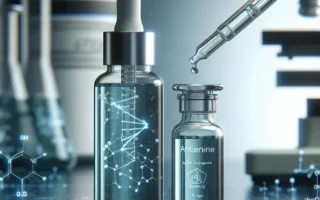The Role of Retinoids in Anti-Aging Skincare
Retinoids play a crucial role in anti-aging skincare, thanks to their proven ability to minimize the appearance of fine lines, wrinkles, and age spots. These vitamin A derivatives work by accelerating cell turnover and stimulating collagen production, leading to smoother, firmer, and more youthful-looking skin. In addition to their anti-aging benefits, retinoids also help to unclog pores, reduce acne, and improve overall skin texture.
When incorporated into a skincare routine, retinoids can deliver impressive results, but it’s important to use them with caution. They can cause skin sensitivity and irritation, especially when first starting out. It’s essential to introduce retinoids gradually and use sun protection during the day, as they can make the skin more susceptible to sun damage. Consulting a dermatologist before starting a retinoid regimen is recommended to ensure proper usage and minimize potential side effects.
Overall, retinoids are powerhouse ingredients in the fight against aging skin. Their ability to enhance cell renewal and collagen synthesis makes them a staple in effective anti-aging skincare formulations, offering proven results in reducing the signs of aging and improving skin quality.
The Benefits of Peptides in Fighting Signs of Aging
Peptides have become a buzzword in the world of anti-aging skincare, and for good reason. These small chains of amino acids play a crucial role in maintaining the firmness, elasticity, and overall youthful appearance of the skin. In the quest to combat the signs of aging, peptides offer a potent weapon in the form of promoting collagen production, reducing the appearance of fine lines and wrinkles, and improving skin texture.
Collagen, the most abundant protein in the human body, is responsible for providing the skin with its structural support and resilience. However, as we age, the production of collagen naturally declines, leading to the formation of wrinkles and sagging skin. Here is where peptides step in. By signaling to the skin that it needs to produce more collagen, peptides effectively help to maintain the skin’s firmness and elasticity, thereby reducing the visible signs of aging.
Furthermore, peptides also possess remarkable anti-inflammatory properties, which can aid in soothing and calming the skin. This can be particularly beneficial for individuals dealing with skin conditions such as redness, irritation, or sensitivity, commonly associated with aging skin.
Incorporating skincare products enriched with peptides into your daily regimen can lead to noticeable improvements in the overall appearance and texture of your skin. Whether in the form of serums, moisturizers, or targeted treatments, the benefits of peptides in combating the signs of aging are supported by scientific research and have made them a staple ingredient in many anti-aging skincare formulations.
As the understanding of peptides and their role in skincare continues to evolve, it is clear that these powerful molecules hold great promise in the quest for youthful, radiant skin. With their ability to stimulate collagen production, reduce the appearance of wrinkles, and provide anti-inflammatory benefits, peptides stand as a testament to the science behind effective anti-aging skincare ingredients.
Understanding the Power of Antioxidants in Skincare
Understanding the power of antioxidants in skincare is crucial for anyone interested in anti-aging skincare ingredients. Antioxidants play a key role in protecting the skin from the damaging effects of free radicals, which are unstable molecules that can lead to premature aging and skin damage. Common antioxidants used in skincare products include vitamins C and E, retinol, coenzyme Q10, and green tea extract.
Vitamin C is a potent antioxidant that helps brighten the skin and reduce the appearance of fine lines and wrinkles. It also aids in the skin’s natural regeneration process, promoting a more youthful appearance. Vitamin E works synergistically with vitamin C to provide additional protection against free radicals and is known for its hydrating properties.
Retinol, a form of vitamin A, is lauded for its ability to stimulate collagen production, improve skin texture, and reduce the appearance of dark spots. Coenzyme Q10 helps to neutralize free radicals and support the skin’s natural ability to repair and regenerate. Green tea extract contains polyphenols that have antioxidant and anti-inflammatory properties, making it an excellent ingredient for soothing and protecting the skin.
When incorporated into a skincare routine, products containing these antioxidants can help combat the visible signs of aging, such as wrinkles, fine lines, and uneven skin tone. In addition to their anti-aging benefits, antioxidants can also assist in protecting the skin from environmental stressors, such as UV radiation and pollution.
Overall, understanding the role of antioxidants in skincare empowers individuals to make informed choices when selecting products that target the effects of aging. By harnessing the power of antioxidants, individuals can support their skin in maintaining a youthful, radiant complexion.



